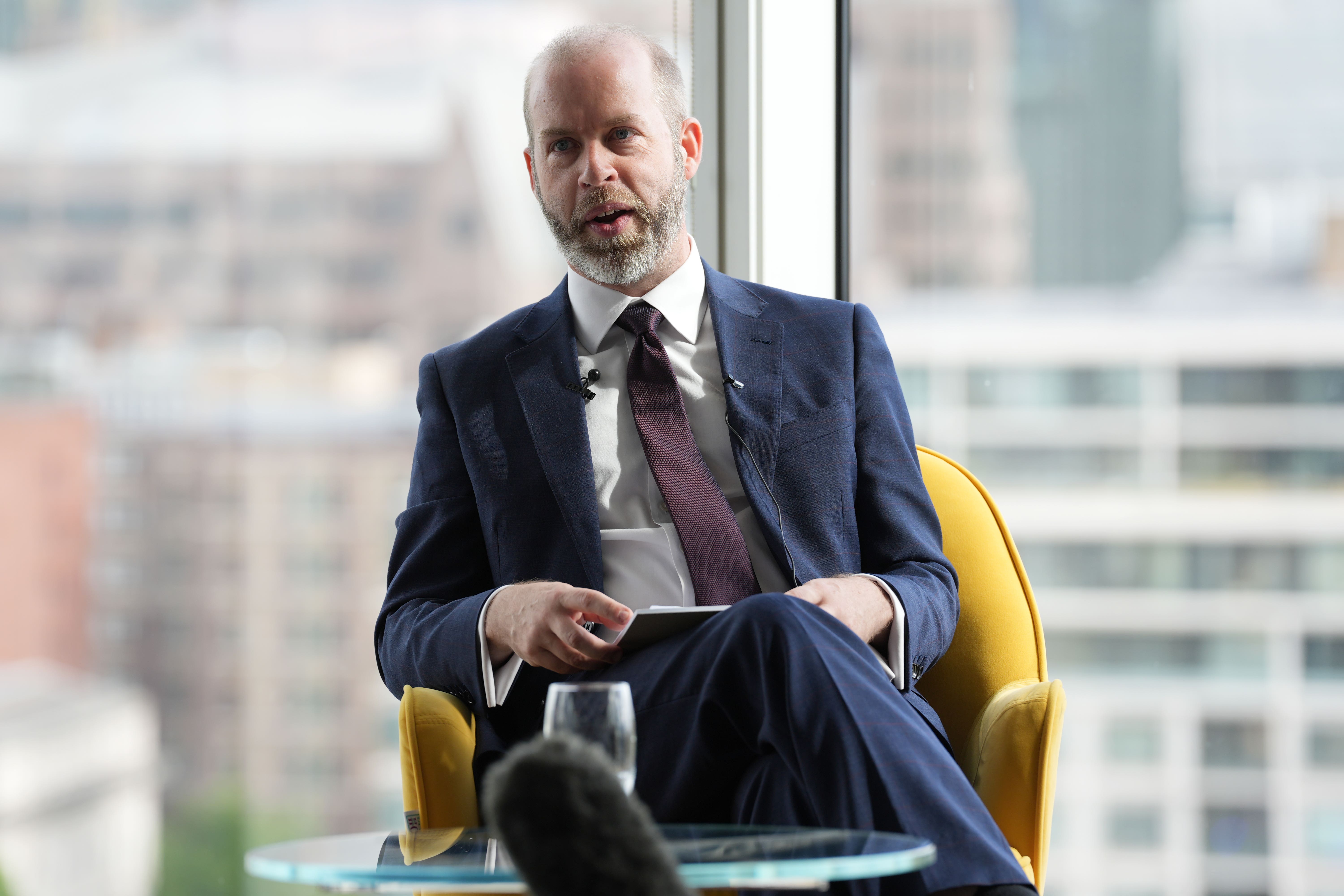Labour cannot tackle child poverty without business, says shadow minister
Labour’s Jonathan Reynolds said the only way to ‘bear down’ on child poverty was by building a stronger economy.

Your support helps us to tell the story
From reproductive rights to climate change to Big Tech, The Independent is on the ground when the story is developing. Whether it's investigating the financials of Elon Musk's pro-Trump PAC or producing our latest documentary, 'The A Word', which shines a light on the American women fighting for reproductive rights, we know how important it is to parse out the facts from the messaging.
At such a critical moment in US history, we need reporters on the ground. Your donation allows us to keep sending journalists to speak to both sides of the story.
The Independent is trusted by Americans across the entire political spectrum. And unlike many other quality news outlets, we choose not to lock Americans out of our reporting and analysis with paywalls. We believe quality journalism should be available to everyone, paid for by those who can afford it.
Your support makes all the difference.Voters should be in “no doubt” that Labour wants to reduce child poverty, a shadow minister has said after the party did not include abolishing the two-child benefit limit in its manifesto.
Jonathan Reynolds, the shadow business and trade secretary, told the PA news agency he understood people wanted to see progress on reducing child poverty, adding a “rise in destitution” had been “one of the most visible features of the last 14 years”.
He said: “I understand that, but I know the only way a future Labour government can really bear down on that, how the last Labour government was able to bear down on that, is with a stronger economy.”
Tackling child poverty was one of the key missions of the 1997-2010 Labour government, and over that period the number of children in poverty fell significantly, reaching its lowest level since the mid-1980s by the time the party left office.
In the manifesto published by Labour on Thursday, the party said child poverty had risen by 700,000 under the Conservatives and committed to developing an “ambitious strategy” to tackle the problem.
But charity figures have said any strategy should include abolishing the limit, with the head of the Child Poverty Action Group saying the policy had done more than any other measure to increase child poverty.
But Mr Reynolds said there were many aspects of the benefits system that needed to be looked at, including local housing allowance and the “taper rate” at which benefits are withdrawn when people return to work.
He told PA tackling the problem required, first of all, “a stronger economy, more business investment, better productivity, better growth”, which Labour would be able to deliver.
The shadow minister made his comments following a breakfast meeting with around 70 chief executives and other senior business people, at which he and shadow chancellor Rachel Reeves discussed Labour’s manifesto.
Sir Keir Starmer also dropped into the event, held at the London offices of professional services firm EY, where he spoke to some of the attendees.
In their remarks, Ms Reeves said Labour’s manifesto bore the “fingerprints” of the people in the room, while Mr Reynolds promised that the party’s engagement with businesses – dubbed by some the “smoked salmon offensive” – would not end if Labour came to power.
He told PA: “I think the relationship Labour’s built with businesses over the last few years is, first of all, a sign of how the party has changed.
“But it’s also about how we can have confidence in delivering the kind of agenda that we put forward in our manifesto, which is for a change of direction in the country, but is fundamentally about wealth creation and a stronger economy, better living standards for everyone across the UK and, of course, the revenue for public services that everybody wants to see.”
Asked about perceptions that Labour was focusing too much on business leaders rather than tackling child poverty, he said: “A stronger economy over time will give us across the board better public services, more choice, more ability to make those kind of decisions.
“But be in no doubt, we want to have the kind of country that is reducing child poverty, that is giving people the opportunities that they deserve.
“But you’ve got to do that in partnership with business and a stronger economy, it’s not a choice between the two things.”